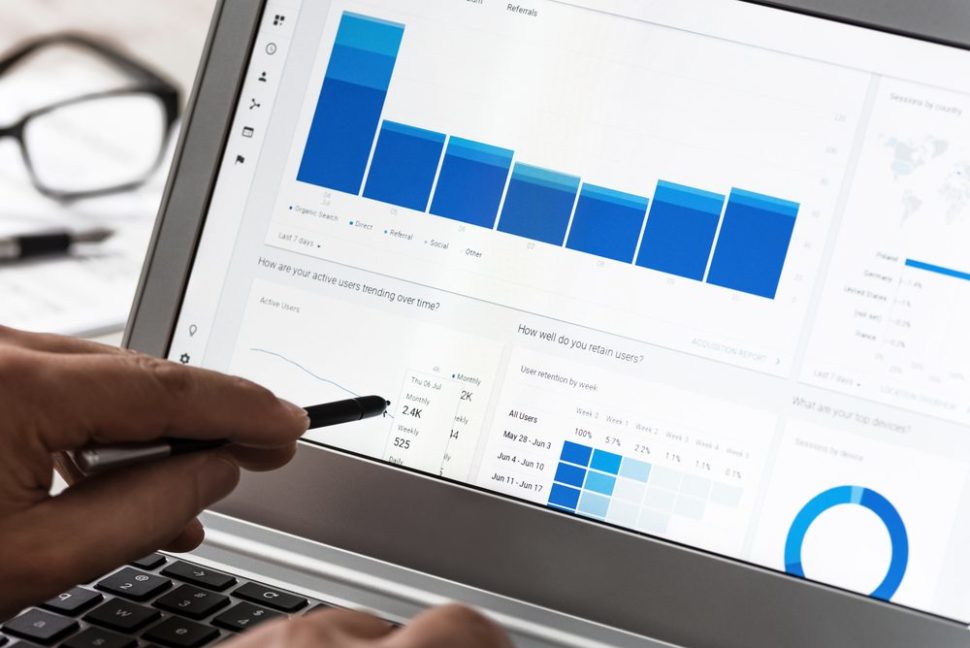Have you ever found yourself waiting around for Google to pick up and index your site’s content? If it’s not happening fast enough, it’s likely your fault.
In fact, the issue probably comes down to something as simple as your sitemap. Or, it could be because of a slow, inaccessible or spam-ridden page. Of course, it’s up to you to diagnose why your pages aren’t being indexed, but we can help.
If you’re not familiar, indexing is when a search engine’s crawler bot takes stock of all the information on your website’s pages. This information then becomes a part of what search engines pull from when answering user queries.
Often, crawlers do their work without a hitch and your site gets listed somewhere in the SERP results. However, if your site hasn’t been indexed, it won’t show up in search engine results. Search engines are the #1 source of organic traffic on the Internet.
You want to be indexed.
Read More: How to Boost SEO, SERP Ranking, and Google Listing With Videos
If your site isn’t indexed, you are likely optimizing your pages and content to no avail. Put simply, you won’t get good traffic numbers without a ranking on Google SERP results.
Sound like you? Don’t worry, we are here to help you to solve this problem and get your site indexed ASAP.
However, your job doesn’t end here. As your site changes and content is added, search engines will need to keep re-indexing your site.
A Simple Guide to Fast Indexing on Google:
The Basics: Crawlers and Indexes
Crawlers are the tiny algorithms that do Google’s bidding. Each search engine sends crawlers to gather the information on every page of code on the Internet.
These spiders are constantly on the lookout for new content on the web. Where, in 2000, Google took almost a month to comprehensively update the state of the Internet’s data, today Google crawlers pick up on new and update pages almost immediately.
When they find your new blog post, for instance, they update the previously indexed version of your site.
Crawlers carry out the indexing process by analyzing the code that makes up a page and its location. It also processes information such as title tags, ALT attributes, and links.
The overall quality and relevance of the page to various keywords is assessed simultaneously. The same goes for any other content you may post, or even entirely new websites.
A clean sitemap usually means a fast indexing. However, poorly coded sitemaps or obvious spam content will be deprioritized by the search engine.
Obviously, you don’t want a poor sitemap that blocks a crawler from indexing your site. This should be easy for any quality webmaster. What’s more important is having a site that gets indexed faster.
You can check your site’s index status by simply searching ‘site:yourdomain.com’ in Google.
If no results come up, then your site is not currently indexed at all. If they do come up but the results are out of date, this means your site isn’t being indexed quickly and often.
Read More: Here’s What to Expect From Google’s new Search Console
You can check how often Google is crawling your pages in Google Search Console. Just click crawl, followed by crawl stats and you will get a blue graph. This will show you how often Google is crawling your site.
Add a Reference to a new Page to Your Sitemap
Adding a reference to a new page in your sitemap is a simple way to get your content indexed quickly.
Just in case you forgot, the sitemap is an XML list or “table of contents” of all the pages on your site. Its main function is to inform search engines of any changes or updates to your site. It also determines how often the search engine should be checking back for changes.
It is rare that sitemaps have a significant effect on your search ranking. But, if assembled poorly, they can negatively affect your indexing rate.
Google’s webmaster blog has explained that when your sitemap supports crawling and indexing, your site can rise to the top of SERP results more quickly. In a nutshell, your sitemap helps Google know about the URLs on your site.
Sitemap creation and submission are essential. Lucky for us, it’s also easily done. For those using WordPress, just use the Google XML Sitemaps plugin.
This plugin will allow you to set how often a sitemap should be created, updated and submitted to search engines. Another bonus of this is that it can automate the process. Whenever you publish something new, the sitemaps gets updated. Google should pick up on this immediately.
Keep in mind that it is absolutely crucial to make sure your sitemap is up to date with Google Search console. As a rule of thumb, you should update your sitemap every two weeks or at the very least once a month.
Make sure new content is shown in an RSS feed
RSS feed stands for Really Simple Syndication or Rich Site Summary. RSS is an automatic feed of your content. It is updated whenever you publish new content such as a blog post.
Feedburner is an easy site to use when creating your own RSS feed. You can just sign in using your Google account. You can also use popular RSS readers such as Feedly and Feeder. Once you have created your RSS, users will be able to subscribe to your feed and receive new posts automatically.
This benefits both the site owner and your visitors, as it allows instant distribution of new content. At the same time, it offers a way for readers to subscribe without having to sign up to a mailing list. This enhanced user experience by offering privacy-conscious readers another option. It also makes it easy to deliver large amounts of content which can be consumed in a short amount of time.
In this way, RSS feeds help to increase readership and conversion rate while helping to get your pages indexed.
When creating your RSS feed, you should consider whether you want to include full posts or excerpts. This will depend on the nature of your content, but if you write longer posts, then excepts will work better in your RSS feed.
You should always feature images in your feed. It’s an obvious tip but that doesn’t make it any less important. Infographics and high-quality images will not only enhance your content aesthetically but it also appears more relevant to Google.
Enhance User Experience
Aside from all of the technical aspects of making a site appealing to crawlers, there are few ineffable qualities that search engines recognize. One of those qualities is high traffic volume.
How does one gather and keep high traffic volume? In short: by offering an exceptional user experience.
Google aims to recommend only the best websites to its users. This means it is looking for sites that offer a good user experience. This will not only get your site indexed but will lead to higher conversion rates via user engagement. User engagement is one of the most valuable metrics in today’s web environment
Here are a few “hacks” for faster indexing:
- Post often and update older content.
- Consider switching to a faster web host if needed.
- Make sure you are offering the highest quality content you can.
- Make sure your site has a good loading speed.
- Link relevant content from websites with high domain authority, and try to gather backlinks from them.
- Make use of internal linking.
- Consider Blogging (Blogs are SEO superstars! They also get crawled and indexed faster than static pages).
Put this advice into action and search engine crawlers will find your new content as quickly as you publish.



















Thanks For sharing this . THis Is so amazing .
THanks
Bepanah
No problem Muhammad! I’m glad you liked it. If you enjoyed this article, you might find this one useful too: https://edgylabs.com/how-to-build-a-strong-seo-foundation-for-a-new-website
https://www.asnoticias.com.br/
Auto getting your new posts indexed in popular search engines instantly after published https://www.urgentindex.com